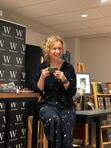Menna Van Praag's Blog
November 11, 2024
Storytelling Sundays #1
When are you happiest? I’ve been thinking a lot about this lately and find that my happiest moments generally centre around peace, quiet and calm. For example, basking in the mid-afternoon Sunday sunshine with a cup of tea, plate of biscuits and reading a good book. Either that, or writing one…
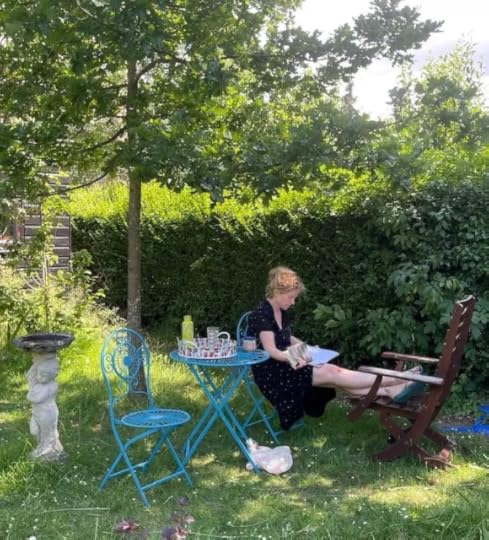
Anyway, this realisation gave me the idea to write Storytelling Sundays, a weekly article to bring the essence of this energy to your inbox. And, with every week, we’ll discuss the restorative powers of a different story...
Today I wanted one to celebrate spring and to choose it I went walking in the cemetery. With the breeze in my hair, the sun on my back and the profusion of flowers all about me, I thought of A Room With a View (E.M.Forster, 1908).
I first read this novel at 18 and it left a lasting impression on both my writing and my life. Of course, I remembered the epic kiss - between the heroine and the courageous poet - among the violets, but what stayed with me most of all was the transformation of the protagonist, Lucy.

“Light and beauty enveloped her. She had fallen onto a little open terrace, which was covered with violets from end to end. ‘Courage!’ cried her companion. ‘Courage and love!'
Lucy was me. She had a musician’s heart - while I had a writer’s - but we were both bursting with the desire to devour life and art, while also being dominated by minds that worried what others would think if we overthrew convention and gave into those passions. The same paradox threatened to tear us apart: I longed to give up my sensible life and dedicate myself to writing but I feared everyone thinking I was a failure and a fool.
And so, when Lucy played Beethoven and Mr Beebe commented: “If Miss Honeychurch ever takes to live as she plays, it will be very exciting both for us and for her,”
I took heart. This, I thought, this is what I must do! And so, I gave up my sensible life, threw caution to the wind, married my own poet and became a waitress and a writer.
Of course I, like Lucy, continually struggle with my fears - and will so long as my mind (& other well-meaning people) keep telling me I’m foolish - so I turn to stories that remind me to defy the dictates of society and live with courage and passion.
So, on this beautiful Sunday, I ask: if you didn’t care about being a failure and a fool, what would you do with your one wild and precious life*? Perhaps you do not know, or perhaps the answer is ever-changing. Perhaps you’ve spend so long ignoring your heart that it no longer speaks to you. In which case, I offer the advice of Mr Emerson (father of the courageous poet):
Stories can provide answers, as can long walks and seeking wise counsel. Meanwhile, make the most of the remainder of this un-repeatable day of your one wild and precious life: “Choose a place and stand in it for all you’re worth, facing the sunshine.” Be the sunshine real, or metaphorical, I hope you can find a pocket of peace and calm today to relax and enjoy it…
As asked by the beautiful poet, Mary Oliver. I HIGHLY recommend her book of essays, Upstream. Especially the essay On Power & Time.
November 7, 2024
Men, Money & Chocolate: 15 years on...
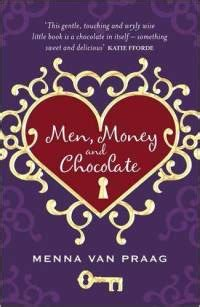
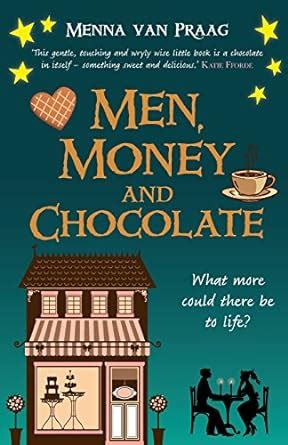
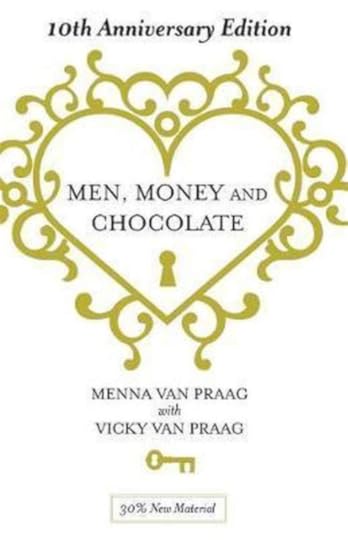
Men, Money & Chocolate was inspired by a very special therapy session. In my twenties I suffered a shocking heartbreak and, as I always did whenever life tipped my world upside down, I went straight to my mother, Vicky, for advice. Fortunately, Vicky isn't only my mum but also the most incredible, insightful, extraordinary therapist-life-coach I've ever encountered (and I've had a fair amount of therapy). In that single session, Vicky not only healed my heartbreak but changed the course of my life. In that session too, this book was born.
At the time I was a waitress, who longed to be a writer (rather like the protagonist of this book) and I took two weeks off work to sit down and write it. Thanks to that incredible session, I finally broke the curse of writer's block I'd been suffering from for the past decade (fuelled by a deadly cocktail of self-doubt and perfectionism) and unleashed a glorious frenzy of words. And I finally finished a novel.
Then I sent it to a publisher (the only one in London that was publishing spiritual books at the time), who promptly sent it back with a brief rejection note. I was devastated. Vicky encouraged me to self-publish it. I told her, in no uncertain terms, that she was crazy, that I lacked the confidence (both in myself and the book) to do such a thing. This was in 2007, in the times before e-books, before Kindles, when self-publishing was still considered vanity-publishing and thus took large investments of both cash and courage. And I had neither. Fortunately, she didn’t give up on me and, through a clever combination of inspiration and persuasion, got me to give it a go.
With Vicky's support, I found great reserves of courage I didn’t know I had, borrowed money I didn’t have, and set about doing the most challenging thing I’d ever done. For a year, I visited every book shop I could reach. I overcame my crippling shyness, embarrassment and self-doubt, begged the booksellers to take copies of my little book. I baked them chocolate flapjacks as bribes. I scraped together small pieces of publicity in local magazines and newspapers. I, slowly, befriended several lovely booksellers who created displays of Men, Money & Chocolate and encouraged their customers to read it.
When I'd sold approx seven hundred books, I wrote to the publisher again. And, small though the sales figures were, I’d done it without the help of tweets and "likes" – no e-books or social media either. It was enough to convince them to take another look. Happily, this time, instead of a rejection note they invited me to lunch. The rest, as they say, was history. Or, rather, the translating of Men, Money & Chocolate into twenty-six languages. Which, just goes to show that you should never take “no” for an answer, at least not a definitive and intractable one.
If you found inspiration in that first edition, we hope you find further inspiration in this anniversary edition. And, if you've never read it before, then doubly so. And, if you finish this story and find yourself wishing that your own life was a little more magical, then I invite you to contact Vicky yourself so she can give you all the insight and inspiration you need to heal your own heartbreaks, to enable you to discover – or reignite – your heart's desires and fulfill your long-cherished dreams.
Menna van Praag, 2024
Contact: vickyvanpraag@icloud.com & www.vickyvanpraag.com
October 5, 2022
Writerly Wisdom Wednesdays: Why I Write.
As someone who cannot recall any but the most significant moments of my childhood, I can never claim to have always wanted to be a writer. I certainly was an avid reader, as surely any writer was and is, but I don’t remember making the causal connection between the stories I read and the writers who wrote them. Thus I can only say that the first time I wanted to write professionally – the first time I ever dared hope that such a thing was possible – was when my inspiring A Level English Literature teacher, Carol Stuart, who introduced me to the works of Margaret Atwood, suggested that one of the stories I’d written was, in her opinion, “publishable”.
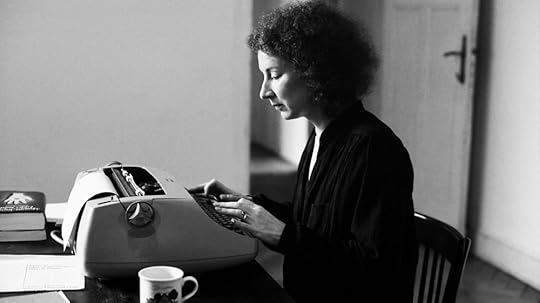
I can still close my eyes and recall that moment – her classroom, where I was sitting, the look of kind sincerity on her face. It was a seminal moment for several reasons, not only because it enabled me to entertain the notion of trying to get published in the first place, but also because it gave me an undying understanding of the significance of great teachers in transforming a person’s life. The life-changing effect of Ms Stuart on the trajectory of my own life was one of the main reasons why I wanted to teach creative writing myself - if I can inspire my own students even half as much as she inspired me, then I'll consider mine a life well-lived.
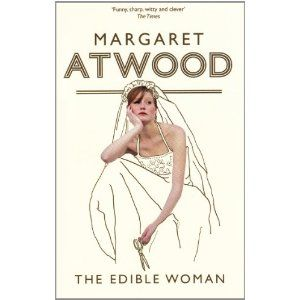
So, once I believed I could write – though it was a long time after that 'till I believed I could write anything that was any good – I began in earnest. Three years later, after graduating from Oxford, I was so set on this path to publication that I decided to forgo getting a “real” job, instead taking the brave, if rather foolhardy, step of not following my fellow students into their city jobs but instead becoming a waitress.
I made this decision after having worked a little while in an office over the summer and found myself so brain-dead at the end of the day that writing novels was the last thing I was able to do. Waitressing, however, was a purely physical job and thus ideal. Whenever I wasn’t serving customers I would write snippets of sentences on my order pad and random napkins, building up stories in my mind while dashing between the kitchen and front-of-house. It worked well and I was happy, though I spent nearly a decade waitressing before I was finally published.
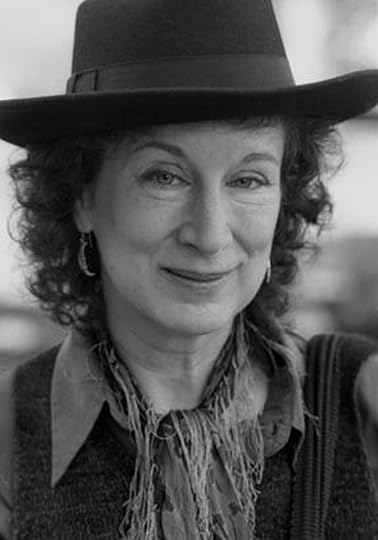
For all this talk of publication, that decade in the wilderness while I was learning my craft taught me that the reason I write isn't actually in order to leave my mark, or (vainly) try to express myself in a way that reaches the heights of those writers I most admire. I write because it is the singular way in which I can express what is within me; I am a writer. I write because it is then that I feel most alive; the act of writing ignites my spirit and soothes my soul. I will do it till I take my final breath. And I hope that it'll be the very same for you, for whatever it is that you wish most of all to do.
Menna van Praag
5th October, 2022
September 14, 2022
Writerly Wisdom Wednesdays: Take 3
Where's your favourite place to write? I have many where I live in Cambridge: my cherished cafés, the Botanical Gardens, a bench in the local cemetery… Yet I often find that, in the immortal words of Agatha Christie: “the best time for planning a book is while you’re doing the dishes.” This is a funny little piece of advice, but I find it’s true for me. This isn't to say that inspiration always strikes while my hands are deep in dishwater but – and this is the key element here – it very often does when I’m engaged in doing something that isn’t mental but physical. It might be hovering, or showering, or cycling; but, whatever it is, so long as the activity engages my body and frees up my mind, then I’m often subsequently blessed with the answer to a plot problem or inspired to think up a few satisfactory sentences...
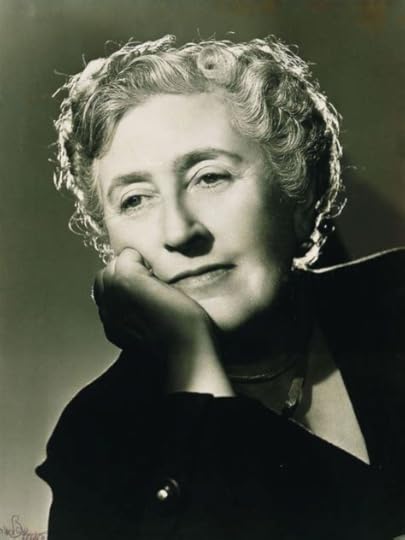
This rather goes against the traditional notion that writing takes place when one is actually sitting down to write. In fact, as Joyce used to try and persuade his wife, a great deal of writing time doesn’t involve any actual writing. A great deal of writing is actually thinking, musing and mulling upon the story before the time comes to set words down upon the page.
To accommodate my thinking on the hoof, I often use the voice memos function on my phone to catch these moments of inspiration, be they plot twists or paragraphs, before they’re forgotten. Now, of course this adds to the writing time because it means that I then have to type up the words, but it also adds a simultaneous sneaky edit – between the ear and the hand, between the act of listening and typing – which is always a beneficial thing. So, nowadays whenever I find myself stuck on something in a story, I simply leave the laptop and go for a walk or a cycle ride and, instead of striving for inspiration, allow it to come to me.
While writing my first novel, The House at the End of Hope Street, there was a particularly dramatic scene towards the end of the book that I kept postponing, being nervous that I couldn’t pull it off. When the time finally came that I couldn’t procrastinate any longer, I spent a few hours trying to craft it, then gave up and went for a walk. I wasn’t halfway down the road when the first four sentences of the scene fell fully-formed into my head. Since I’d forgotten my phone, I immediately turned and ran all the way back home, slid huffing and puffing into my chair, typed up those four sentences then continued to write the entire scene in half an hour without stopping. I didn’t edit or change it and I still think it’s the best scene in the book.

Now, whenever I find myself staring at the blank screen and the blinking cursor, I get up and go for a little walk or, more often since having children, do a bit of housework. As I wash/hover/tidy the infinitely regenerating clutter of toys, I let my mind wander loosely around the scene I was writing, skirting it gently, mulling upon its finer points, and it usually isn’t too long before a spark of inspiration settles on my shoulder and I’m scurrying back to my desk again…
Menna van Praag
14th September, 2022
September 7, 2022
Writerly Wisdom Wednesdays: Take 2
I was recently watching clips of Olympic figure skaters on YouTube, gawping open-mouthed at those incredible athletes as they spun, twirled and hurled themselves into the air. The elegance was exquisite, the confidence astounding. Of course, they don’t always soar but sometimes fall, crashing down from their aerial splendors onto the ice, like so many Icaruses tumbling from the sky.

But what always amazes me is how these Olympians don’t allow falling to stop them, they don’t sit on their bums and bemoan their fates, they don’t succumb to self-doubt too scared to attempt another triple axel again. They don’t hurl their skates across the rink and scream. They don’t give up, they get back up and give it their all, swallowing physical pain and emotional anguish, throwing themselves with gusto into the next series of spins to finish with aplomb.
I’ve always loved figure skating, perhaps because it’s such a perfect metaphor for the writing life. Skaters, like all athletes, have to try again and again and again before they succeed, they have to overcome fear of failure, and fear of fatal injury, to stand a chance at victory. They have to commit absolutely and, if something goes wrong while they’re performing, they can’t stop for a moment to doubt themselves, they have to leap – with perfect precision and absolute focus – into the next twirl.
Figure skaters remind me of what’s possible in terms of overcoming the urge to succumb to self-doubt, to give up after all the inevitable rejections of the writing life; they remind me not to lose my mojo every time someone says “no”. They remind me to keep writing with passion and dedication, to finish every project I begin with as much aplomb as I can. Personally, I need all the reminding I can get on this point, since the lure of self-doubt is ever-present and, indeed, the natural inclination of my melancholic mind-set. But I try, I do everything I can to overcome my nature and emulate my heroes; because one can either succumb to self-doubt or one can twirl, but one cannot do both.
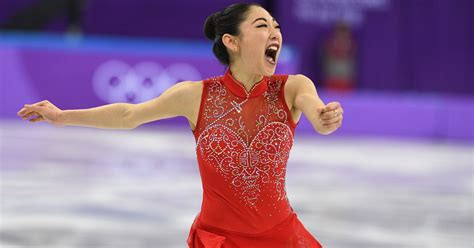
If I was writing a letter to my younger self, or to any writer setting out on the road to publication I would say this: you will suffer rejection, A LOT of rejection. But it’s okay. Everyone does. Everyone – no matter where they are in their careers. It doesn’t matter how many books you’ve published, you never know if they’ll say “no” to the next one. And, if they do, it doesn’t mean that you’re doing anything wrong. It’s the nature of publishing, it’s part of the process. I have three novels written several years ago, each of which I love and cherish, but which have been rejected by A LOT of publishers and deemed unfit for publication. Still, I won’t give up. I’ll keep submitting and, no doubt, I’ll keep getting rejected but I will not allow myself to succumb to self-doubt. And so maybe, just maybe, one day somebody will say "yes".
So don’t let rejection stop you, don’t even let it give you pause – well, perhaps a little cry and an evening on the sofa with a tub of ice cream or bottle of wine wouldn’t go amiss. After all, we writers are fortunate enough to suffer our falls in private – not in public with millions watching, so we can throw a few things and scream if we want. We can take the time we need to seek solace and comfort before finding the courage to begin again. And then, we can go on. So, when you’ve fallen on your arse trying to execute the literary equivalent of a triple axel, pick yourself up on the floor, get back into your chair and keep writing. Because one can either succumb to self-doubt or write novels, but one cannot do both.
Menna van Praag
7th September, 2022
August 31, 2022
Writerly Wisdom Wednesdays: Take 1
The Best Advice I’ve Received as a Writer
While I was researching the writings of Virginia Woolf for my debut novel, The House at the End of Hope Street, in which her ghost gives advice to current residents of the house, I found these words attributed to her: “No need to hurry. No need to sparkle. No need to be anybody but oneself.” When I read this my shoulders dropped and I gave a great sigh of relief. Let’s take it one sentence at a time.
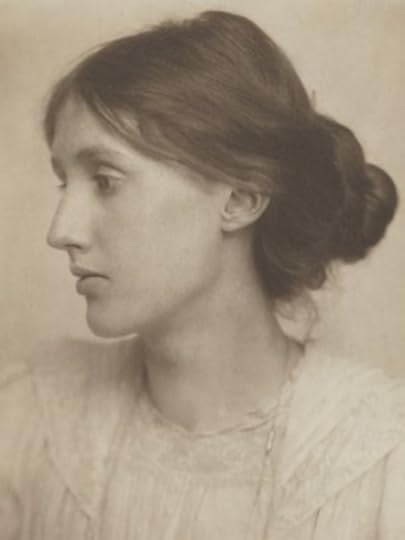
No need to hurry. This is excellent advice to balance with that of another writer I admire, Dorothy Parker, who said: “Writing is the art of applying the ass to the seat.” Now, that's very good advice and I’m a great believer in taking action. But sometimes I do too much; pushing and striving to finish a story when what’s really needed is a little rest and relaxation, time to let thoughts percolate, to let the fruit of ideas ripen before being picked. The advice of not hurrying is particularly important now that I have kids and thus far less time to sit in my study and write. When I was younger, overly ambitious and obsessive, I had no balance in my life – I could write my stories (or think about them) for fifteen hours a day and it didn’t matter. But now I find it important to slow down, to focus on my kids, or my husband, or my friends, when I’m with them and not be itching to get back to the page. It is important too to take the time for other things that make me happy: walks in the woods, baking a cake, or simply sitting and staring out of a window at the rain. Woolf’s words remind me that I'm not rushing to the finish line; the page can wait – it’s not going anywhere.
No need to sparkle. Starting out as I writer in my twenties, I didn’t trust my words. I thought they weren’t good enough, weren’t lyrical enough, weren’t literary. I spent weeks, months, years re-writing the same passages over and again. Needless to say, I didn’t get very far when it came to finishing anything. It look me a long time - the best part of a decade - to understand that I didn’t need to be fancy, I simply needed to learn how to express what was in my heart. That was when, on the cusp of my 30th birthday, I sat down to write Men, Money & Chocolate, a little novella I wrote in two weeks, pouring my heart onto the page without editing - or worrying if the language was lyrical or the story compelling. It has since been published into 26 languages. That experience taught me that I don’t need to add ribbons and bows to my writing because I fear it isn’t good enough. I only need to be real and true. I don't need to dress up my heart.
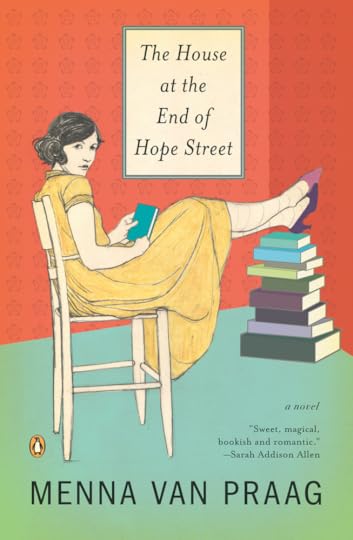
No need to be anybody but yourself. Oh, how wish I’d read these words when I was in my early twenties! While I was busy judging myself mercilessly against the bar of the writers I most admired – Virginia Woolf among them. I suffered from long, debilitating bouts of writer’s block then, because I didn’t think my work was good enough. It took me a long while to learn that I didn’t need to strive to be as good as those writers – or a poor echo of them – but simply the best version of myself. Now, finally, in my forties, I fully understand that it doesn’t matter that I’m not Virginia Woolf or, indeed, anyone else. My style is my own. It is what it is. And my only job is to express myself as best as I can. This is all I can do. It is all you can do. Trust that it is enough.
Menna van Praag
31st August, 2022.
Writerly Wisdom Wednesday. Take One.
The Best Advice I’ve Received as a Writer
While I was researching the writings of Virginia Woolf for my debut novel, The House at the End of Hope Street, in which her ghost gives advice to current residents of the house, I found these words attributed to her: “No need to hurry. No need to sparkle. No need to be anybody but oneself.” When I read this my shoulders dropped and I gave a great sigh of relief. Let’s take it one sentence at a time.

No need to hurry. This is excellent advice to balance with that of another writer I admire, Dorothy Parker, who said: “Writing is the art of applying the ass to the seat.” Now, that's very good advice and I’m a great believer in taking action. But sometimes I do too much; pushing and striving to finish a story when what’s really needed is a little rest and relaxation, time to let thoughts percolate, to let the fruit of ideas ripen before being picked. The advice of not hurrying is particularly important now that I have kids and thus far less time to sit in my study and write. When I was younger, overly ambitious and obsessive, I had no balance in my life – I could write my stories (or think about them) for fifteen hours a day and it didn’t matter. But now I find it important to slow down, to focus on my kids, or my husband, or my friends, when I’m with them and not be itching to get back to the page. It is important too to take the time for other things that make me happy: walks in the woods, baking a cake, or simply sitting and staring out of a window at the rain. Woolf’s words remind me that I'm not rushing to the finish line; the page can wait – it’s not going anywhere.
No need to sparkle. Starting out as I writer in my twenties, I didn’t trust my words. I thought they weren’t good enough, weren’t lyrical enough, weren’t literary. I spent weeks, months, years re-writing the same passages over and again. Needless to say, I didn’t get very far when it came to finishing anything. It look me a long time - the best part of a decade - to understand that I didn’t need to be fancy, I simply needed to learn how to express what was in my heart. That was when, on the cusp of my 30th birthday, I sat down to write Men, Money & Chocolate, a little novella I wrote in two weeks, pouring my heart onto the page without editing - or worrying if the language was lyrical or the story compelling. It has since been published into 26 languages. That experience taught me that I don’t need to add ribbons and bows to my writing because I fear it isn’t good enough. I only need to be real and true. I don't need to dress up my heart.

No need to be anybody but yourself. Oh, how wish I’d read these words when I was in my early twenties! While I was busy judging myself mercilessly against the bar of the writers I most admired – Virginia Woolf among them. I suffered from long, debilitating bouts of writer’s block then, because I didn’t think my work was good enough. It took me a long while to learn that I didn’t need to strive to be as good as those writers – or a poor echo of them – but simply the best version of myself. Now, finally, in my forties, I fully understand that it doesn’t matter that I’m not Virginia Woolf or, indeed, anyone else. My style is my own. It is what it is. And my only job is to express myself as best as I can. This is all I can do. It is all you can do. Trust that it is enough.
Menna van Praag
31st August, 2022.
February 28, 2022
Cambridge Creative Writing Company!
My fellow tutor, Emily Winslow, and I have set up our own creative writing company. We'll be teaching at the Pitt Rivers building in the heart of the beautiful city of Cambridge...
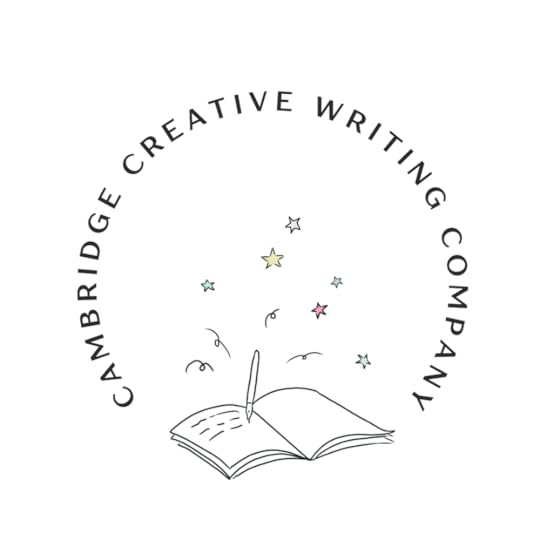
April 4, 2020
Frolic in Fiction
My essay, adapted from my piece on Open Book, for the fabulous Frolic magazine...
March 26, 2020
Open Book -
I've been listening to Open Book on Radio 4 for as long as I can remember. So, when I was invited to speak on it - the same program as Isabel Allende, who I've admired every since reading The House of the Spirits over 20 years ago - I was thrilled. You can listen here.
https://www.bbc.co.uk/programmes/m000fdyd
Sadly & inevitably, they did cut my essay, but if you fancy reading, here it is in full:
When I was a little girl I, like most children, spent much of my time breaking through the thick walls of reality to enter the limitless vistas of my imagination. The fact that my parent’s divorce coincided with my discovery of both Wonderland and Narnia only reinforced this tendency. I spent hours reading while sitting in wardrobes, perfectly placed in case the portal to Narnia inadvertently opened.
At nineteen I read Isabel Allende’s The House of the Spirits and, by the time I’d turned the final page, the course of my life was set. I would be a writer. With every word I wrote, for better or worse, I was paving the way to my own enchanted house of eerie secrets and attic spirits.
The way Allende described her characters perfectly bridged the ordinary and the extra-ordinary, the natural and the super-natural. For example, Rosa was born with green hair and yellow eyes:
The tone of her skin, with its soft bluish lights, and of her hair, as well as her slow movements and silent character, all made one think of some inhabitant of the sea. There was something of the fish to her (if she had had a scaly tail, she would have been a mermaid), but her two legs placed her squarely on the tenuous line between a human being and a creature of myth.
In my twenties I discovered our own queen of Magical Realism, Angela Carter. Her blending of the real and the unreal was effortlessly sublime. Like Allende, her characters bridge the mundane and the magical. Thus we are introduced to the protagonist of Nights at the Circus:
‘Lor’ love you, sir!’ Fevvers sang out in a voice that clanged like dustbins lids. ‘As to my place of birth, why, I saw light of day right here in smoky old London, didn’t I! Not billed the “Cockney Venus”, for nothing, sir, though they could just as well ‘ave called me “Helen of the High Wire”, due to the unusual circumstances in which I come ashore – for I never docked via what you might call the normal channels, sir, oh, dear me, no; but, just like Helen of Troy, was hatched. Hatched out of a bloody great egg while Bow Bells rang, as ever is!’
Magical Realism endures because it's a perfect reflection of the human condition. We are constantly divided; always tipping back and forth between positivity and negativity, between hope and despair, between faith and doubt. The best authors are able to perfectly balance between these two states. So, when Neil Gaiman, in his exquisite Stardust, sets the scene he takes elements of historical reality to ground the fantastical story, thus encouraging the potentially sceptical reader that these events aren’t quite so far from the real world:
The events that follow transpired many years ago. Queen Victoria was on the throne of England, but she was not yet the black-clad widow of Windsor… Mr Charles Dickens was serializing his novel Oliver Twist; Mr Draper had just taken the first photograph of the moon, freezing her pale face on cold paper; Mr Morse had recently announced a way of transmitting messages down metal wires. Had you mentioned magic or Faerie to any of them, they would have smiled at you disdainfully, except, perhaps for Mr Dickens, at the time a young man, and beardless. He would have looked at you wistfully.
Some magical realism is pure whimsy. The Night Circus by Erin Morgenstern tells of a circus created by two magicians who fashion tents containing cloud mazes, pools of tears and wishing trees. Visiting this circus offers hours of pure fantastical escapism. Other authors inject magic into their stories to offer alternative social and political commentary. Thus in Exit West, Mohsin Hamid tells a tale of civil war and migration with the addition of black doors that can take people to random cities anywhere in the world. Unsurprisingly, this world without borders does not prove to be the safe-haven the immigrants might have hoped. In The Toy Makers Robert Dinsdale tells of an enchanted Emporium where the toys come alive but it soon turns into a dark tale of sibling rivalry where the relentless competition between the two artisan brothers is reflected in the backdrop of the two world wars. The Binding by Bridget Collins is set in a society where novels aren’t created from imagination but real memories. So the book binder tells us:
We take memories and bind them. Whatever people can’t bear to remember. Whatever they can’t live with. We take those memories and put them where they can’t do any harm.
But while this first seems like a relief, a perfect form of therapy, it’s quickly becomes apparent that this leaves those at the bottom of the socio-economic hierarchy vulnerable to great abuses. Magical worlds then are, in the most fundamental ways, no different from our own.
In this way Magical Realism is a juxtaposition between our knowledge of the mundane, dirty reality of life and our wish for the beautiful ideals of our dreams. Thus, we all know we're muggles yet we still hope, in a small secret part of our minds, that we might actually be magicians…
Also, the lovely Jez from BBC Radio Cambridgeshire interviewed me here: https://www.bbc.co.uk/sounds/play/p080t6kk

